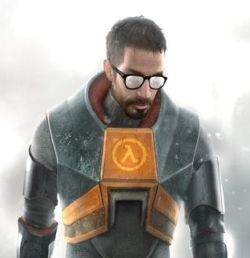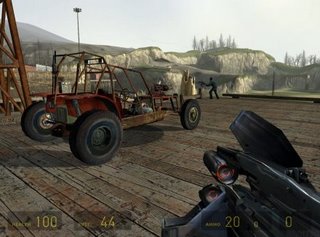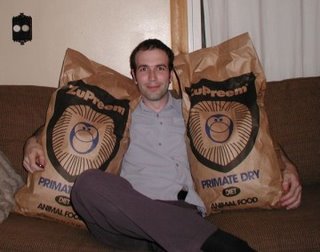When M-dawg and his homies are waxin', maxxin' an' relaxxxin' in the studio, this is how it all goes down:Get this video and more at
MySpace.comSo, what's actually going on in the above 7 minutes and 13 seconds of visual virtuosity?
For about four days in April this year I found myself in a recording studio in Newcastle upon Tyne. I'm not entirely sure how I ended up there, but it may have had something to do with the fact that, for the previous six months, I'd been involved in a musical "project" with a friend of mine, Mark Nichol.
Mark's a drummer by trade, but he also plays guitar and writes songs. At this point, alarm bells should be ringing; we've all seen and heard what happens when you let drummers write songs: Ringo, Slipknot, Phil Collins, Kaiser Chiefs... You see? The list speaks for itself. Except that, this time, the songs are really good and Mark wanted me play guitar on them. (Before that, you see, we'd been in a band together and I'd somehow managed to convince him that I was a halfway-decent guitarist -- PFSHAWW! Enough of this false modesty rubbish; I'm at least a decent guitar player.) How could I resist such an offer?
As you can see on the video, it wasn't just me and Mark who were involved in this musical gat attack. Also present are: John Pattison (gangsta name: J 2 tha P) on vocals; James Main (gangsta handle: JJ 'Phreaky-D' McPhly) on keyboards (or just "keys" if you're a pretentious pillock); Vanessa Nichol (gangsta ID: V-Loc) on vocals; and Steve Caithness (we never asked Steve for his gangsta name but, if I had to guess, I'd say it'd be: Crunk Caithnizzle) on bass.
Finally, orchestrating the whole shebang from behind that Yamaha DC-5400 SoundstaticXtreme Professional sound-desk you can see in many of the shots is none other than Fred Purser. Yes, that Fred Purser. Latterly of the Tygers of Pan Tang and 70s punk band Penetration. Suffice to say he's like a scientist on the knobs. A magical scientist. A magical musical scientist. He's good.
If you've read this far, you probably won't be averse to a small plug at this point. So here it is: Go to www.myspace.com/marknichol and you can listen to four of the songs we recorded and read some more about our antics in the studio in Mark's blog.
As you'll see if you read the blurb and the blog entries on the site, these songs are essentially an expression of worship to God, giving thanks for who He is and what He's done for us. I think they've come out pretty well. But you can go and listen and judge for yourself!
For the most part, the songs are guitar-driven rock in style, but they're poppy enough to have a wider appeal than the lank-haired, black-t-shirt-wearing metal crowd (apologies if that includes you; it used to be me). The lyrics are also available, for those who want to check the theology's sound, or if you just like reading words that rhyme.
Peace out.









